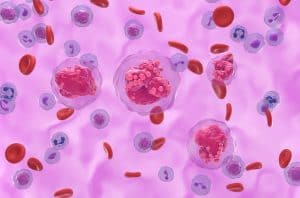
NICE drug expense limit of £20 million could cause treatment delays
pharmafile | March 16, 2017 | News story | Medical Communications, Sales and Marketing | NHS England, NICE, fast-track appraisal process, rare disease
NICE has released its decision on the fast-track approval process and other changes that will be brought through at the same time – high up on the list for wider interest is the £20 million limit on drug costs in the first three years of approval. This relates to commercial discussions that will be triggered if NICE projects that a drug could breach its £20 million limit in the first three years, allowing NICE to negotiate the price lower.
The part of this could cause issues for patients is that, depending on discussions with the pharmaceutical company, NHS England will be able to delay introduction of the drug to a wider pool of patients. This means that some patients could see delays of three years before receiving approved treatments, replacing the current system where the NHS has 90 days to make the drug available to patients.
Sir Andrew Dillon, NICE chief executive, said, “We are taking forward the proposal for more flexibility in the adoption of technologies into the NHS which are cost effective but which have a predicted budget impact of £20 million or more during the first 3 years. Companies will have the opportunity of confidential negotiations with NHS England, to help avoid and minimise delays in patients having access to treatments recommended by NICE. We have agreed that we will review this in 3 years to see what impact it is having on allowing access to new drugs.”
The change are likely to cause serious friction between NICE and the pharmaceutical industry, a relationship that had never been particularly cosy to begin with. The decision has been met with an outcry from the industry bodies and the charities involved in encouraging access of drugs to patients.
“These changes raise the question of the Government’s pledge to support a life-sciences industry, and send a strong signal that England will not be prioritizing treatments for patients with ultra-rare diseases. The UK is a recognized leader in research, treatment and care for rare diseases, which could be challenged with the changing and uncertain access landscape for new treatments and therapies. Ultimately, this will call into question whether companies will still look to England as a place to launch their products and make investments.” commented Sara Trafford-Jones, VP & General Manager of Alexion UK, in a statement released shortly after the announcement.
Rare disease treatments often have a larger price tag due to the cost of development and the relatively small pool patient that require treatment, and the decision will place pressure on companies, such as Alexion, to navigate its drugs through to UK patients.
The plans are scheduled to begin implementation on 1 April.
Ben Hargreaves
Related Content

NICE recommends migraine treatment for NHS use
The National Institute for Health and Care Excellence (NICE) has shared draft guidance recommending AbbVie’s …

GSK’s Jemperli recommended by NICE for endometrial cancer treatment
GSK has announced that the National Institute for Health and Care Excellence (NICE) has recommended …

NICE recommends SC treatment of AbbVie’s Tepkinly for patients with DLBCL
AbbVie has announced that the National Institute for Health and Care Excellence (NICE) has recommended …








